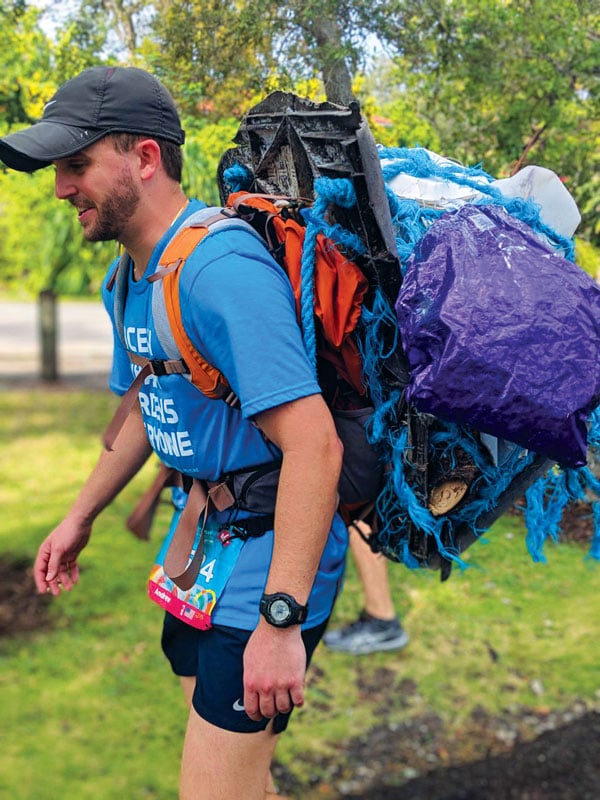1,700
Retired Colonel Hikes A.T. for Fellow Soldiers
Colonel Don Fallin of Cullen, Ala., served as a helicopter pilot in the army for 34 years. After retiring, he hiked the entire 2,190-mile trail, using his adventure to raise money for fellow members of the military. With a Twitter bump from actor Gary Sinise, he raised over $17,600 for the Johnny Mac Soldiers Fund.
Here’s how much exercise you need to make it to age 90
A new study in the Journal of Epidemiology & Community Health found that men who completed 90 minutes of physical activity a day were 39 percent more likely to reach 90 than their peers who exercised for less than 30 minutes per day. Each additional 30 minutes of exercise was associated with a 5 percent increase in turning 90. Women who exercised 30 to 60 minutes each day improved their chances of reaching 90 by 21 percent. Moving more than 60 minutes each day did not have a significant impact on longevity in women. In the U.S., the average life expectancy in men is 76 and 81 in women.
Three-year-old missing in NC forest said a bear kept him safe
Casey Hathaway, a North Carolina three-year-old who went missing from his grandmother’s yard, has been found alive after spending two nights in the forest in freezing temperatures. The wind and rain became so bad while Casey was missing that authorities urged volunteers to stay home. But when rescuers, who searched the area with helicopters, drones, K-9 units, and divers, heard a crying kid, they found Casey tangled in thorny bushes, cold and wet but otherwise healthy. The boy told rescuers, and later his family, that a friendly bear kept him safe during his ordeal. Bear experts say the story is likely imagined. Regardless, the child escaped with a few scratches, asking rescuers for some water and his mother. He then recuperated in the hospital eating Cheetos and watching his favorite show, Paw Patrol.
Runners complete 135-mile ultramarathon during polar vortex
Runners at the Arrowhead 135-mile ultramarathon in International Falls, Minnesota faced temperatures of minus 35 degrees and wind chills as cold as minus 68. Polar vortex weather pounded the 146 racers who toed the line this year in four disciplines: running, cycling, skiing, and kick-sledding. Only 13 runners finished, the last one coming in after nearly 57 hours.
Man completes marathon carrying 30 pounds of garbage on his back

Andrew Otazo completed the Miami Marathon carrying 30 pounds of garbage on his back. Otazo has been cleaning up parts of a nature preserve near his home in Florida, removing an estimated 6,500 pounds of garbage over the past year. The marathon was part of a fundraiser for Miami Waterkeeper. Otazo raised over $4,600, which will help clean beaches and mangrove forests and aid in advocating for the reduction of single-use plastic items.
Kincora A.T. Hostel will reach the 25,000-visitor milestone next month.
A.T. legend Bob Peoples has operated the hostel for 23 years. He will serve ice cream to the 25,000th hiker.
Study shows 11 of Georgia’s 12 coal-powered plants are leaking chemicals into the groundwater.
Coal ash contains toxins such as arsenic, cadmium, and lead, which are known to cause cancer and heart disease.








